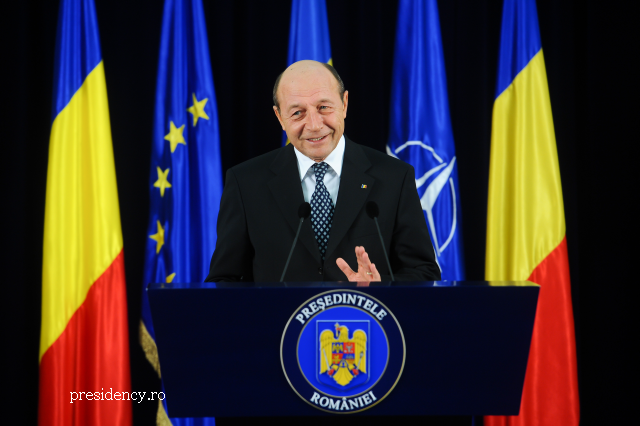Reactions to the Situation in Crimea
Alongside Poland, Slovakia and Hungary, Romania is one of the NATO and EU member states which share a common border with Ukraine, which exceeds 600 km. Furthermore, over 400,000 ethnic Romanians are living along this border, in communities clustered in western Ukraine. These are enough reasons prompting Bucharest to show legitimate concern about the situation in the neighbouring country, whose sovereignty and territorial integrity it has always respected and upheld.

Bogdan Matei, 17.03.2014, 13:39
Alongside Poland, Slovakia and Hungary, Romania is one of the NATO and EU member states which share a common border with Ukraine, which exceeds 600 km. Furthermore, over 400,000 ethnic Romanians are living along this border, in communities clustered in western Ukraine. These are enough reasons prompting Bucharest to show legitimate concern about the situation in the neighbouring country, whose sovereignty and territorial integrity it has always respected and upheld.
President Traian Basescu has said Romania considers illegal the referendum held in Crimea and it will not recognise its results. The Romanian head of state says a referendum held under the threat of military occupation has nothing to do with the norms of a democratic process. Therefore, the international community can’t recognise it and believe it legitimate. In another move, President Traian Basescu calls on Russia to take action, in its relation with Ukraine, in conformity with the UN Charter and in accordance with the international law and says Romania supports a diplomatic resolution to the crisis. In turn, Romanian foreign minister Titus Corlatean has hailed what he called NATO’s positive approach to the crisis in Ukraine, by deploying reconnaissance aircraft to Poland and Romania, in an attempt to monitor the crisis.
“The measure taken by the North-Atlantic Council is designed to prevent tensions at regional level and to guarantee the member states’ security,” Corlatean says. In an interview to the foreign media, the Romanian foreign minister voiced concern over the escalation of the Russian intervention in the Black Sea area. In his turn, one of Corlatean’s deputies, the state secretary for strategic affairs in the Romanian Foreign Ministry, Bogdan Aurescu, has said the developments in Ukraine are a severe and alarming signal for Europe, underlying that the referendum in Crimea is illegitimate and illegal. “The peninsula can represent another step forward, in a Russian expansionist spiral, and Romania, situated on the border with Ukraine, becomes the last shield of the western block”, the mass media quotes analysts as saying.
Romania’s worries are increased by the existence, only 100 km away of its western border, of another hotbed of pro-Russian separatism: Transdniester, in the east of the Republic of Moldova, which got out from under Chishinau’s control, over two decades ago, following an armed conflict which left hundreds of dead and wounded. The conflict ended with the intervention of the Russian troops, on the separatists’ side. Analysts make and find obvious analogies between Crimea and Transdniester, between these two cases and the Georgian separatist regions of Abhazia and Southern Ossetia. Against this backdrop, Romanian Prime Minister Victor Ponta says the European Union and its neighbouring states should do more for Georgia and the Republic of Moldova and validate the pro-western choice of the two former Soviet countries’ governments and peoples.






























